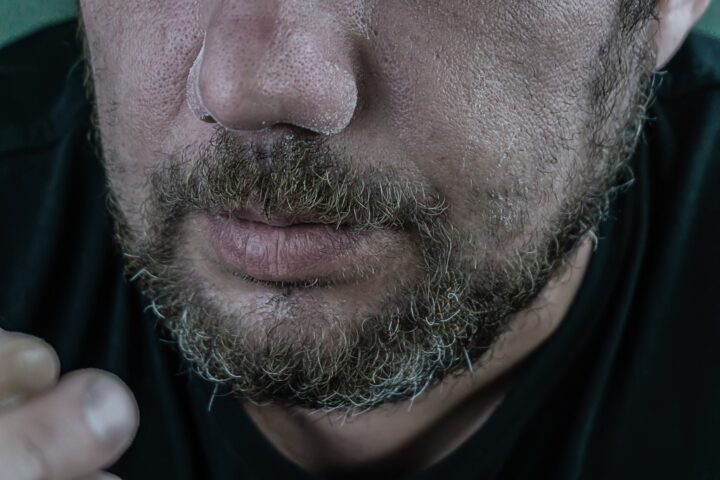In the path of addiction recovery, shame and guilt can weigh heavily on individuals and their families. As a holistic addictions counselor, I understand the significance of addressing these emotions within the context of the 12 Step Fellowship. In this article, we will explore the transformative journey of overcoming shame and guilt, providing guidance and support to families seeking healing. By embracing this process, you can move towards a life of recovery, self-acceptance, and renewed hope.
Understanding Shame and Guilt in Addiction
Shame and guilt are often intertwined with addictive behaviors, leading to a cycle of negative self-perception and emotional burden. It is important to recognize that addiction is not a moral failing but a symptom of underlying pain and distress. Shame arises from feeling flawed or unworthy, while guilt stems from remorse over past actions. In the 12 Step Fellowship, you can learn to understand and address these emotions in a compassionate and healing manner.
The Role of the 12 Step Fellowship in Overcoming Shame and Guilt
The 12 Step Fellowship offers a supportive environment where individuals can openly share their experiences, including the shame and guilt associated with addiction. Group meetings create a space for vulnerability, understanding, and acceptance. Here, you can connect with others who have faced similar struggles, realizing that you are not alone in your journey.
Frequently Asked Questions
- How can I overcome the shame and guilt I feel about my past actions during my addiction?
At Changes Rehab, we believe in the transformative power of healing and self-acceptance. Through therapy, counseling, and the support of the 12 Step Fellowship, you can work through the steps, make amends, and learn to forgive yourself. By focusing on personal growth and making positive changes, you can gradually release the burden of shame and guilt.
- Will I be judged or shamed for my past actions during the 12 Step Fellowship?
No. The 12 Step Fellowship is built on principles of compassion, empathy, and understanding. Members are encouraged to create a safe and non-judgmental environment where everyone can openly share their experiences. You will find support and acceptance from individuals who have faced similar challenges.
- How can sharing my story in group meetings help me overcome shame and guilt?
Sharing your story in group meetings allows you to let go of the secrets and burdens you have carried. Through the process of sharing, you can gain insights, receive validation, and experience the healing power of vulnerability. You will find comfort in knowing that others understand and can relate to your journey.
- Can therapy and counseling help in addressing shame and guilt?
Therapy and counseling play a vital role in healing from shame and guilt. Working with a skilled professional at Changes Rehab can help you explore the underlying causes of these emotions, develop healthy coping mechanisms, and foster self-compassion. Therapy provides a supportive and non-judgmental space for personal growth.
- How can the 12 Step Fellowship support my journey towards self-forgiveness?
The 12 Step Fellowship offers a framework for making amends and seeking forgiveness. By working through the steps, with the guidance of a sponsor, you can take responsibility for your past actions, make restitution where appropriate, and experience the transformative power of self-forgiveness. Through this process, you can restore your sense of self-worth and embrace a future free from the weight of guilt.
Overcoming addiction is a courageous journey that often comes with its share of shame and guilt. As a holistic addictions counselor, I understand the immense impact that shame and guilt can have on individuals and their families. In this article, we will explore the significance of addressing shame and guilt within the 12 Step Fellowship, offering guidance and support to help you navigate these challenging emotions. By embracing healing and growth, you can move towards a life of recovery and well-being.
- What is the Role of Shame and Guilt in Addiction? Shame and guilt are powerful emotions that can contribute to the cycle of addiction. They often arise from a sense of personal failure, remorse for past actions, or the perceived disappointment of loved ones. These emotions can keep individuals trapped in a destructive pattern, hindering their progress towards recovery.
- How Does the 12 Step Fellowship Address Shame and Guilt? The 12 Step Fellowship provides a supportive environment where individuals can openly share their experiences, including the shame and guilt associated with addiction. Through group meetings, step work, and sponsorship, the fellowship encourages a compassionate and non-judgmental space for healing and growth.
- Can the 12 Steps Help You Overcome Shame and Guilt? Yes, the 12 Steps provide a roadmap for overcoming shame and guilt. By working through the steps, you gain self-awareness, make amends where necessary, and develop a deeper understanding of yourself and your past actions. The process allows you to release shame and guilt, paving the way for self-forgiveness and personal transformation.
- How Can Sharing in Group Meetings Help with Shame and Guilt? Sharing in group meetings offers an opportunity to voice your struggles, fears, and shame, knowing that you are not alone. As you hear others’ stories, you realize that shame and guilt are common experiences in addiction and recovery. This shared vulnerability fosters empathy, acceptance, and healing.
- How Does the Fellowship Support Self-Forgiveness? The fellowship provides a supportive network of individuals who have walked a similar path. Through sponsorship and guidance, you can learn to let go of self-judgment and embrace self-forgiveness. Working the steps and engaging in regular meetings help to reinforce the message that you are worthy of forgiveness and personal growth.
- How Can I Address Shame and Guilt Outside of Meetings? Engaging in individual therapy or counseling sessions can complement the work done in the 12 Step Fellowship. Professional guidance allows you to explore the underlying causes of shame and guilt, develop healthy coping strategies, and foster self-compassion on your journey towards healing.
- Can Healing Relationships Contribute to Overcoming Shame and Guilt? Rebuilding and healing relationships can have a profound impact on releasing shame and guilt. Through open and honest communication, making amends, and demonstrating consistent change, you can repair broken bonds, restore trust, and experience forgiveness from loved ones, further supporting your recovery process.
- How Does Self-Care Help in Overcoming Shame and Guilt? Practicing self-care is crucial in addressing shame and guilt. By prioritizing your physical, emotional, and spiritual well-being, you can cultivate self-compassion, strengthen resilience, and nurture a positive sense of self-worth. Engaging in activities that bring you joy, practicing mindfulness, and maintaining healthy boundaries are all essential components of self-care.
The path to overcoming shame and guilt in the 12 Step Fellowship and therapy is a transformative journey of healing, self-acceptance, and personal growth. By recognizing that addiction is not a moral failing but a symptom of underlying pain, you can release the weight of shame and guilt that has burdened you for so long. Embrace the support and understanding of the 12 Step Fellowship, therapy, and professional guidance to navigate the complexities of your recovery.
Remember, you are not defined by your past actions. The 12 Step Fellowship provides a safe space for you to share your experiences, find solace in the stories of others, and cultivate self-acceptance. Through therapy and counseling, you can explore the root causes of shame and guilt, develop healthy coping strategies, and foster self-compassion on your journey to lasting recovery.




